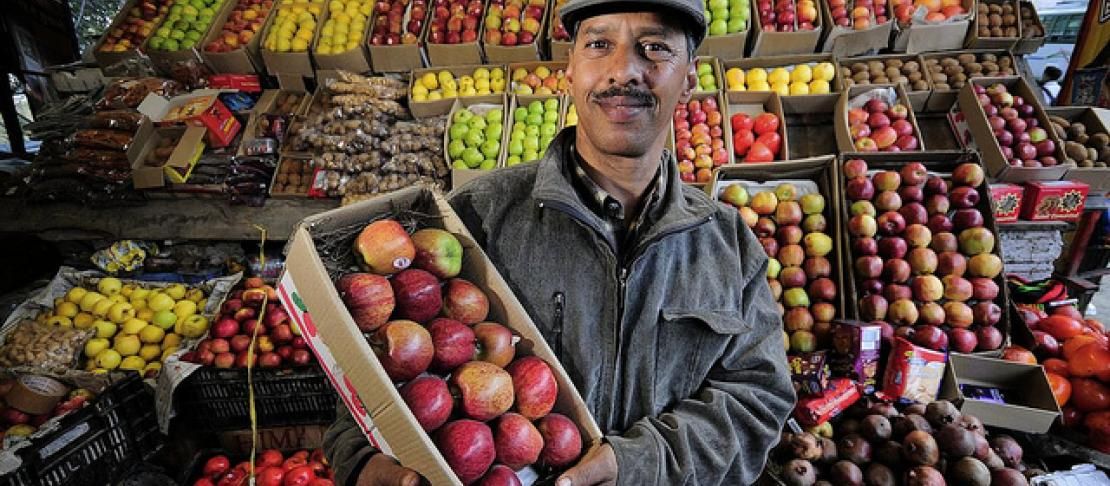Systemic Integrated Adaptation

Drawing together diverse strands of knowledge
The Systemic Integrated Adaptation (SIA) Research Program drew together diverse forms of knowledge generation and sense-making from across disciplines, sectors and social worlds towards the interrelated goals of climate adaptation, sustainable development, environmental management and food security.
The program was fundamentally concerned with small-holder farmers and the integrated social, economic, political and environmental systems in which they are embedded. It aimed to co-identify and support appropriate actions at multiple levels within these systems according to the principle of subsidiarity and adopted a critical approach to systems and their boundaries.
The Challenge
Food security underpins the stability and prosperity of entire societies, as evidenced by recent food crises around the world. Global food systems are facing unprecedented and ever increasing pressure from climate change. The resilience and adaptive capacity of food systems depends upon a complex web of social, economic and environmental factors such as population growth, social capital, education and access to information, equity, community or household structure, political stability, strength of institutions, conflict, poverty, economic variability, natural resource management, biodiversity, the adaptive capacity of ecosystems, geographical conditions and so forth.
Accordingly, identification of socially and culturally appropriate and endorsed adaptation strategies that balance human development objectives with environmental management objectives in a changing environment has become an urgent necessity. Furthermore, ways of integrating these strategies across disciplines, sectors and scales is also crucial in order to avoid conflicting strategies or approaches that ultimately lead to unexpected negative consequences down the track. In short, we need a systemic framework for integrated adaptation planning.
About the project
The SIA program was designed to operationalize principles of interdisciplinarity, action research, critical systems theory and strength-based capacity development. It applied multiple lenses to the same thing: adaptation of smallholder farmers, from social, institutional, economic, political and environmental perspectives respectively. The overarching question of each of the lenses was as follows:
The Project Process:
The SIA program adopted a grounded-theory approach to implement integrated field research studies that are followed by in-country and Oxford-based pluri-disciplinary dialogues. Scalable and replicable features from three distinct field studies (Nepal, Ghana, and Brazil) assisted to:
- clarify whether, and if so what, differences in meanings, principles, methods and tools are being realized in formal and informal adaptation practice and why;
- reveal implications for diagnosing and building resilience and adaptation through capacity development interventions; and
- identify implications for the development of meta-theory and meta-methodology for adaptation planning.
Political lens: who has the power to do what about adaptation of small holder farmers? This includes the questions, what is the role of policy (multi-scale) in adaptation of small holder farmers? How can policy best support adaptation of small holder farmers?
Social lens: what is the impact of different forms of social differentiation on adaptation of small-holder farmers? This includes the questions, what social, cultural and gender specific barriers and opportunities exist for adaptation of small-holder farmers? How do particular adaptation strategies differentially affect different social groups?
Economic lens: what networks exist for transfer of funds to support adaptation of small-holder farmers (top-down and bottom up)? This includes the questions, how can equitable, ethical and efficient transfer of funds be guaranteed? How can it be ensured that funds reach those most vulnerable?
Environmental lens: what is the environmental impact of the various adaptation strategies available to different actors at multiple levels in the linked social, economic and political systems in which small-holder farmers are embedded? This includes the questions, what is the environmental impact of adaptation policy? What is the environmental impact of the tools and strategies currently available to farmers? How can environmentally sustainable adaptation of small-holder farmers be guaranteed?
All researchers were in the field together conducting shared data collection, shared analysis and shared boundary critique as well as unique approaches. Dialogical processes and systems thinking were used to integrate systems analysis across the lenses.
Key Links and Resources
Facebook Page: Systemic Integrated Adaptation
Working Paper: State of agricultural climate change adaptation policy in Nepal
Blog: Researchers map actors’ power and influence in adaptation policy
Blog: Feast or famine: A tale of two agricultural cities
Blog: From Wall St to farmers in Ghana: finance fundamentals remain the same
Read the latest blog on Systematic Integrated Adaptation activities